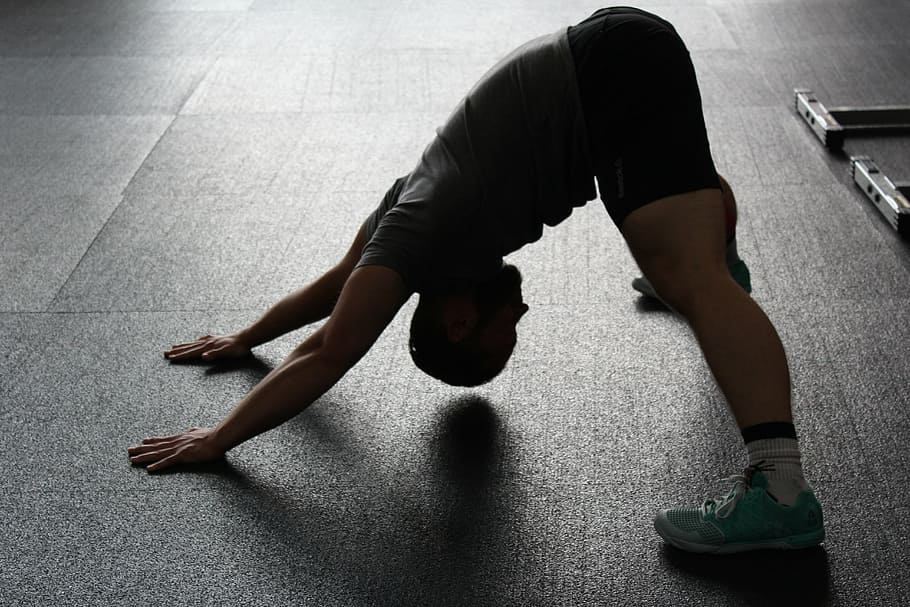Introduction:
A good sleep at night is essential for our health and well being. It allows our bodies to rest, repair, and restore, preparing us for the challenges of the day ahead. However, certain bedtime habits can break our sleep and have harmful effects on our physical and mental health. In this blog, we will shed light on 10 dangerous bedtime habits that you should avoid. By steering clear of these habits, you can create a conducive sleep environment and ensure a restful night's sleep. So, let's dive in and discover which habits to eliminate for a healthier sleep routine.
1. Don't Go To Bed Immediately After Having Your Dinner.
A good sleep at night is essential for our health and well being. It allows our bodies to rest, repair, and restore, preparing us for the challenges of the day ahead. However, certain bedtime habits can break our sleep and have harmful effects on our physical and mental health. In this blog, we will shed light on 10 dangerous bedtime habits that you should avoid. By steering clear of these habits, you can create a conducive sleep environment and ensure a restful night's sleep. So, let's dive in and discover which habits to eliminate for a healthier sleep routine.
1. Don't Go To Bed Immediately After Having Your Dinner.
It is essential to avoid going to bed immediately after having dinner. Allowing a gap between your last meal of the day and bedtime is important for proper digestion, weight management, and overall well-being. Engaging in light physical activity after dinner can further enhance these benefits. By adopting this healthy habit, you can improve your sleep quality, support your metabolism, and wake up feeling refreshed and energized each morning.
2. Avoid Drinking Coffee Before You Go To Sleep.
Caffeine stimulates your brain and keeps you awake. Drinking coffee too close to bedtime can negatively impact your sleep quality and overall restfulness. To ensure a good night's sleep, it is recommended to avoid consuming coffee at least 4 to 5 hours before you plan to sleep. By establishing a cut-off time for caffeine intake and being mindful of your sleep routine, you can enjoy the energizing benefits of coffee while still prioritizing your sleep health.
3. Feeling Cold, Do Not Sleep Barefoot.
Cold feet can have a broader impact on our sleep quality. Studies have shown that the body's core temperature naturally decreases during sleep, reaching its lowest point in the early hours of the morning. This drop in core temperature helps facilitate sleep onset and promotes deep, restorative sleep. However, when the feet are cold, it can be challenging for the body to maintain an optimal temperature balance, potentially disrupting this natural process and affecting the overall sleep experience. You can wear pair of socks or heating pads for warm feet.
4. Don't Sleep At Irregular Timings.
Try to sleep same time every day so that your body adapt that nature. Establishing a consistent sleep routine is an investment in your overall well-being. Prioritizing healthy sleep patterns will not only enhance your physical and mental health but also improve your daily performance and quality of life.
5. Don't Exercise Just Before Going To Sleep.
It will stimulates your body and keep you awake. While regular exercise is crucial for overall health and well-being, it's best to avoid engaging in intense physical activity just before going to sleep. Give yourself ample time to wind down and allow your body to naturally cool down before hitting the sack. By prioritizing good sleep hygiene and scheduling exercise appropriately, you can ensure that both your physical fitness and sleep quality are optimized. You can workout in the morning or 3 hours before you get to your bed.
6. Don't Read Books Before Going To Sleep.
While reading is generally a beneficial activity, it's essential to choose the right material before bed. Avoiding books that are overly stimulating, disturbing, or emotionally charged can help promote a better night's sleep and ensure a more restful and rejuvenating experience. By being mindful of our reading choices. One of the good habits, especially when you are suffering from insomnia ( You can't sleep easily ). If possible then complete the reading part in hour before sleep.
7. Don't Sleep On An Uncomfortable Mattress.
Do not underestimate the impact of sleeping on an uncomfortable mattress. The quality of your mattress plays a significant role in determining the quality of your sleep, overall health, and well-being. Prioritize your sleep, and take the time to find a mattress that provides the necessary comfort and support your body needs. By doing so, you can optimize your sleep, improve your physical and mental health, and wake up feeling refreshed and ready to take on the day. A good mattress facilitates sound sleep.
8. Don't Drink Water Or Any Other Liquid An Hour Before You Go To Sleep.
Refraining from drinking water or any other liquid an hour before you sleep is a commonly suggested practice to avoid disturbances to your sleep cycle. By minimizing the need to use the bathroom during the night and reducing the likelihood of acid reflux or heartburn, you can increase your chances of experiencing a restful and uninterrupted night's sleep.
8. Don't Drink Water Or Any Other Liquid An Hour Before You Go To Sleep.
Refraining from drinking water or any other liquid an hour before you sleep is a commonly suggested practice to avoid disturbances to your sleep cycle. By minimizing the need to use the bathroom during the night and reducing the likelihood of acid reflux or heartburn, you can increase your chances of experiencing a restful and uninterrupted night's sleep.
9. Don't Sleep On Your Stomach.
While personal preferences for sleep positions may vary, sleeping on your stomach is generally not recommended due to the potential negative effects it can have on your neck, spine, breathing, digestion, and overall sleep quality. It is important to prioritize your well-being and consider alternative sleep positions that promote optimal health and rest.
While personal preferences for sleep positions may vary, sleeping on your stomach is generally not recommended due to the potential negative effects it can have on your neck, spine, breathing, digestion, and overall sleep quality. It is important to prioritize your well-being and consider alternative sleep positions that promote optimal health and rest.
10. Stay Away From Electric Gadgets.
While electric gadgets undeniably offer numerous advantages and have become an integral part of our lives, it is important to maintain a balanced approach to their usage. Being mindful of the potential health risks, fostering strong interpersonal relationships, and engaging in physical activities are all essential for our overall well-being. By setting boundaries and consciously limiting our exposure to electric gadgets, we can strike a healthier balance and embrace a more fulfilling and enriching life.
Conclusion:
At first you will get some difficulties. ut at a time your body adapt the difference and you can notice the positive changes of good sleep in your daily life. So, tonight, let go of those harmful habits and embrace a sleep routine that supports your well-being. Sleep tight and wake up refreshed, ready to conquer each new day with vitality and vigor. I hope you like the article.
That's it for today, thank you🙏












0 Comments